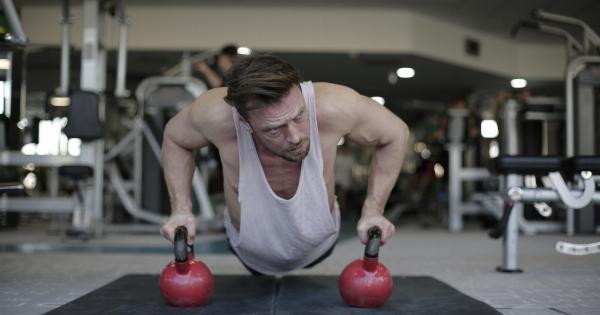Exercise is often praised for its numerous health benefits, including weight management, improved cardiovascular health, and mental well-being. However, not all exercises yield the same results for everyone.
The effectiveness of exercise can vary greatly from person to person due to various factors such as genetic predispositions, fitness levels, and individual responses to different forms of physical activity. In this article, we will explore the concept of exercise effectiveness and the significant variations that exist among individuals.
Genetic Predispositions
Genetics plays a significant role in determining how our bodies respond to exercise. Some individuals may be genetically predisposed to certain physical characteristics and abilities, which can impact the effectiveness of exercise.
For example, individuals with a higher percentage of slow-twitch muscle fibers are more likely to excel in endurance-related activities such as long-distance running or cycling. On the other hand, those with a higher proportion of fast-twitch muscle fibers may have a natural advantage in explosive power activities like sprinting or weightlifting.
Fitness Levels
Another key factor that influences the effectiveness of exercise is an individual’s current fitness level.
Those who are already physically active and have a higher level of fitness may experience diminishing returns from their workouts compared to sedentary individuals. The concept of progressive overload comes into play here, suggesting that individuals need to continually challenge their bodies in order to see continued improvements.
Therefore, a workout routine that may be effective for someone who is just starting to exercise may not yield the same results for someone with a higher fitness level.
Individual Responses to Different Forms of Exercise
Not all individuals respond equally to different forms of exercise. Some people find running to be a highly effective way to burn calories and improve cardiovascular health, while others may dislike running or not experience the same benefits from it.
The concept of exercise enjoyment is vital for long-term adherence and consistency, so finding activities that an individual enjoys and can stick with is crucial. Additionally, individuals have different physiological responses to exercise, such as varying metabolic rates, heart rate responses, and hormonal changes, which can ultimately impact the outcomes of their exercise efforts.
Body Composition and Metabolism
Body composition and metabolism also contribute to the variations in exercise effectiveness among individuals.
Two people with the same weight and height may have very different body compositions, with one having a higher percentage of lean muscle mass and the other having a higher proportion of body fat. Muscle is more metabolically active than fat, meaning individuals with more muscle mass will generally burn more calories even at rest.
Thus, exercises that help build and maintain muscle can be more effective for them compared to those focusing solely on cardiovascular fitness.
Health Conditions and Physical Limitations
Individuals with pre-existing health conditions or physical limitations may experience different outcomes from exercise compared to those without any constraints.
For example, someone with asthma may find aerobic activities more challenging and less effective due to reduced lung capacity. Similarly, individuals with joint problems may need to modify certain exercises to prevent further damage or discomfort.
It is essential to consider these factors when designing personalized exercise programs to ensure safety and maximize effectiveness.
Motivation and Compliance
One’s level of motivation and adherence to an exercise routine can significantly impact its effectiveness. Consistency is key when it comes to exercise, as long-term commitment is necessary to see substantial changes in fitness and overall health.
The level of motivation and dedication an individual has towards their exercise goals can determine whether they achieve desired results or not. Additionally, external factors such as support systems, access to facilities, and availability of time can influence an individual’s ability to regularly engage in and benefit from exercise.
Diet and Nutritional Habits
The impact of exercise on an individual’s overall health and fitness is closely intertwined with their diet and nutritional habits.
Nutrition plays a crucial role in fueling workouts, optimizing recovery, and achieving desired body composition goals. Different individuals may have varying dietary needs, preferences, and restrictions, which can directly impact the effectiveness of exercise.
Consuming an appropriate balance of macronutrients, staying hydrated, and addressing any potential nutrient deficiencies are essential components of maximizing exercise outcomes.
Age and Hormonal Changes
As individuals age, hormonal shifts and changes in physiological functioning can affect the outcomes of exercise.
For example, women undergoing menopause may experience a decrease in estrogen levels, which can lead to changes in body composition and potentially impact exercise effectiveness. Age-related factors such as decreased muscle mass, joint stiffness, and reduced overall stamina can also influence exercise outcomes. Therefore, it is important to consider individual age-related attributes when designing exercise programs.
Social and Environmental Factors
Exercise effectiveness can also be influenced by social and environmental factors. Individuals who have access to supportive social networks, workout partners, or professional guidance may have better outcomes compared to those who lack such resources.
Furthermore, the environment in which exercise takes place, such as climate, facilities, and available amenities, can also impact an individual’s exercise experience and effectiveness.
Personalization and Trial-and-Error
Due to the significant variations in exercise effectiveness among individuals, personalization and a trial-and-error approach are often necessary to find the most suitable exercise routine.
What works exceptionally well for one person may not yield the same results for another. Experimenting with different forms of exercise, intensities, durations, and schedules can help individuals discover what works best for their unique needs and goals.
Consulting with fitness professionals, such as personal trainers or exercise physiologists, can provide valuable guidance in personalizing exercise routines.
Conclusion
Exercise effectiveness varies greatly from person to person due to a multitude of factors.
Genetic predispositions, fitness levels, individual responses to different forms of exercise, body composition, health conditions, motivation, diet, age, and social/environmental factors all contribute to these variations. Acknowledging and understanding these diverse factors can help individuals tailor their exercise routines to optimize effectiveness, achieve desired results, and promote overall health and well-being.





























